We had a quiet night at our idyllic wildcamping spot at Koronisias and after breakfast gazing out at the Ambracian Gulf we debated whether to stay another day, but in the end decided to move on. I had read about a wildcamping spot on what some said was the best beach in Greece – that was an invitation not to be missed.
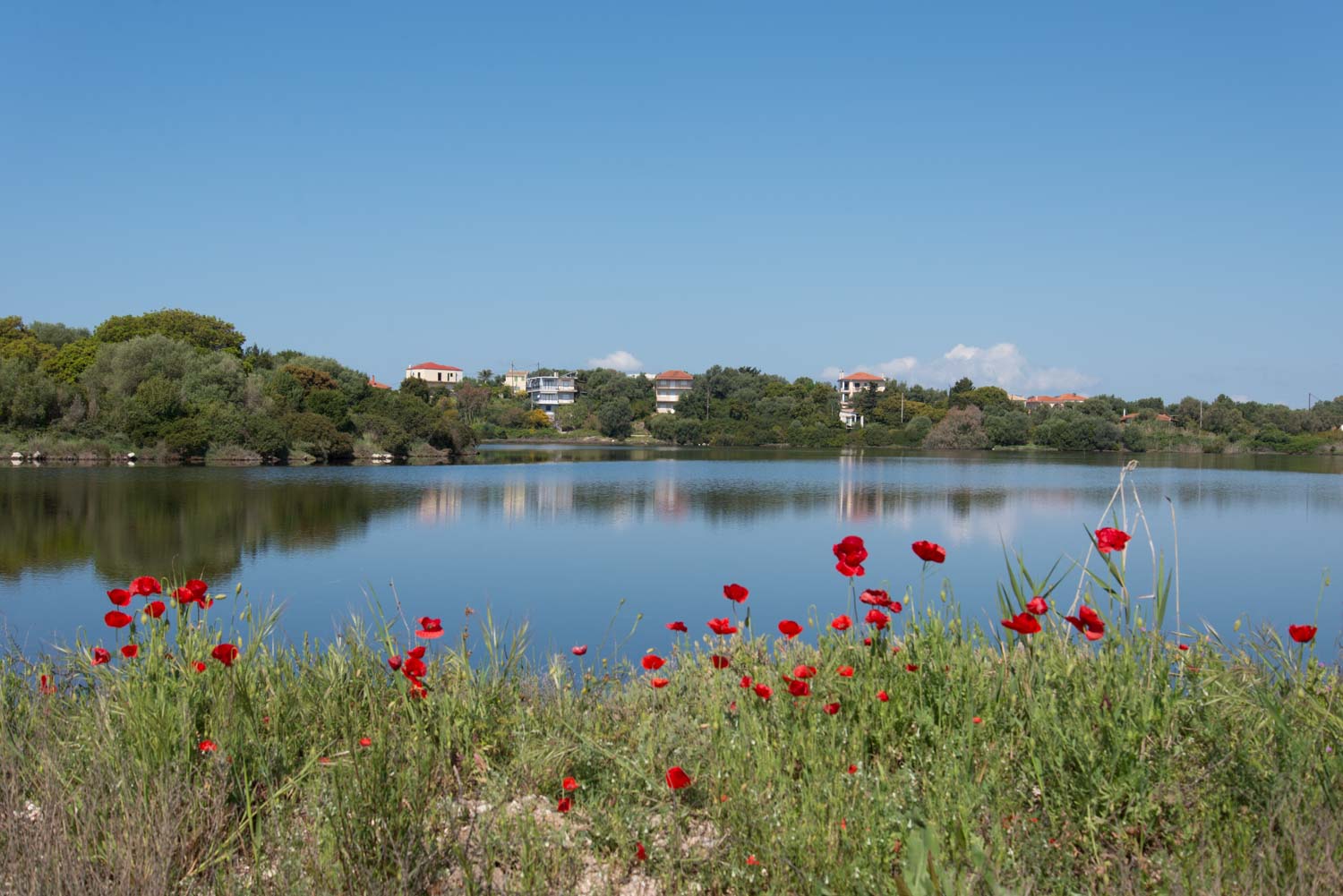
As we made our way back along the causeway we were reminded, by the big flocks of them, that we had seen flamingoes by the bucket load yesterday but we were so exited by seeing Pelicans that we had forgotten all about them. We are getting spoiled with our birdlife.
The Beach is on the island of Lefkada. In reality it wasn’t an island for the vast majority of its existence until the Corinthians dug a canal in the seventh century BC across the isthmus joining it to the mainland.
As we headed for our destination we were quietly driving along when we saw some “old stuff” to the side of the road which was currently being excavated. There’s “old stuff” littering the whole of Greece. You can barely drive a mile without seeing a sign for an “ancient theatre” or the like. The excavations didn’t seem that interesting by the standards of what we have seen elsewhere so we paid little attention. But, a few hundred metres further on, we saw a huge wall stretching for what seemed like a mile along the side of the road.
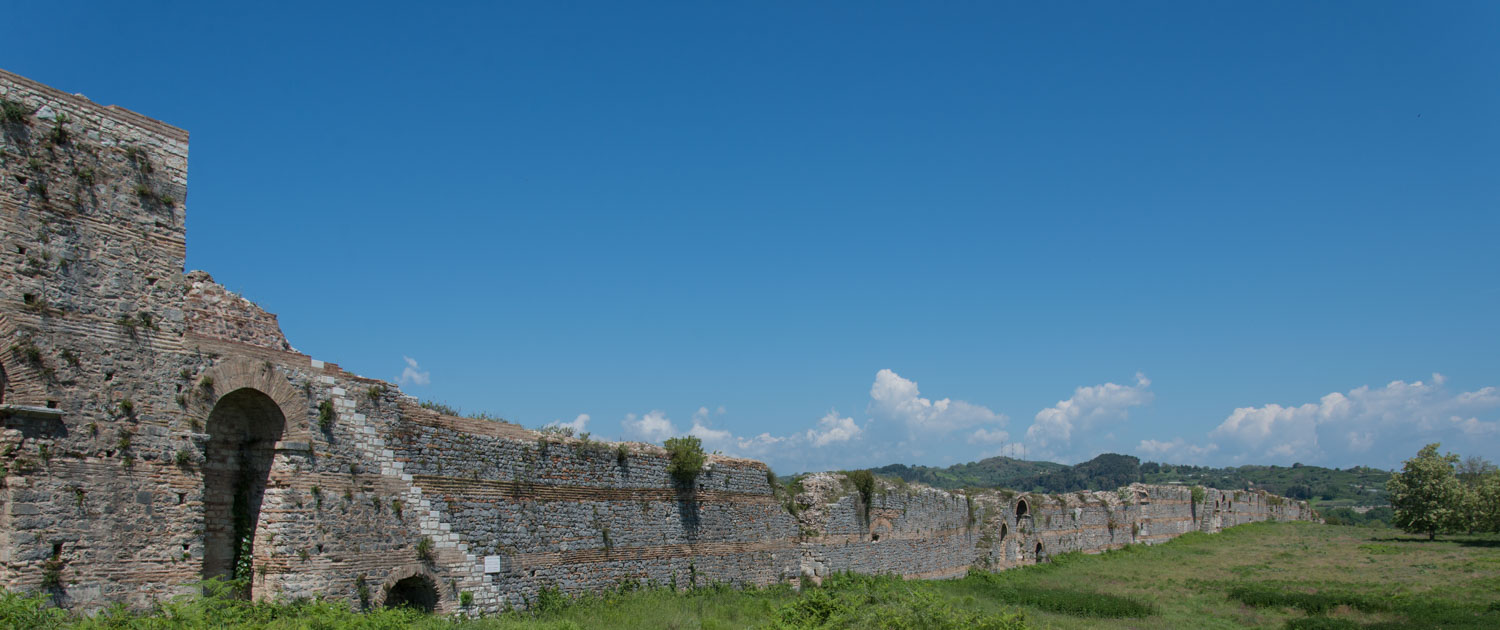
Fortunately there was a small pull in, so I swung Basil over and out we piled. We had stumbled across, completely by chance, the remains of the ancient city of Nicopolis. Apparently Roman General Octavian (later the first Roman Emperor Augustus) had defeated Anthony and Cleopatra at the nearby battle of Actium and ordered that a great new city to be built at Nicopolis. Apparently the site was not well chosen, there being no natural water supply. However, as usual, the Romans overcame this with an aqueduct.
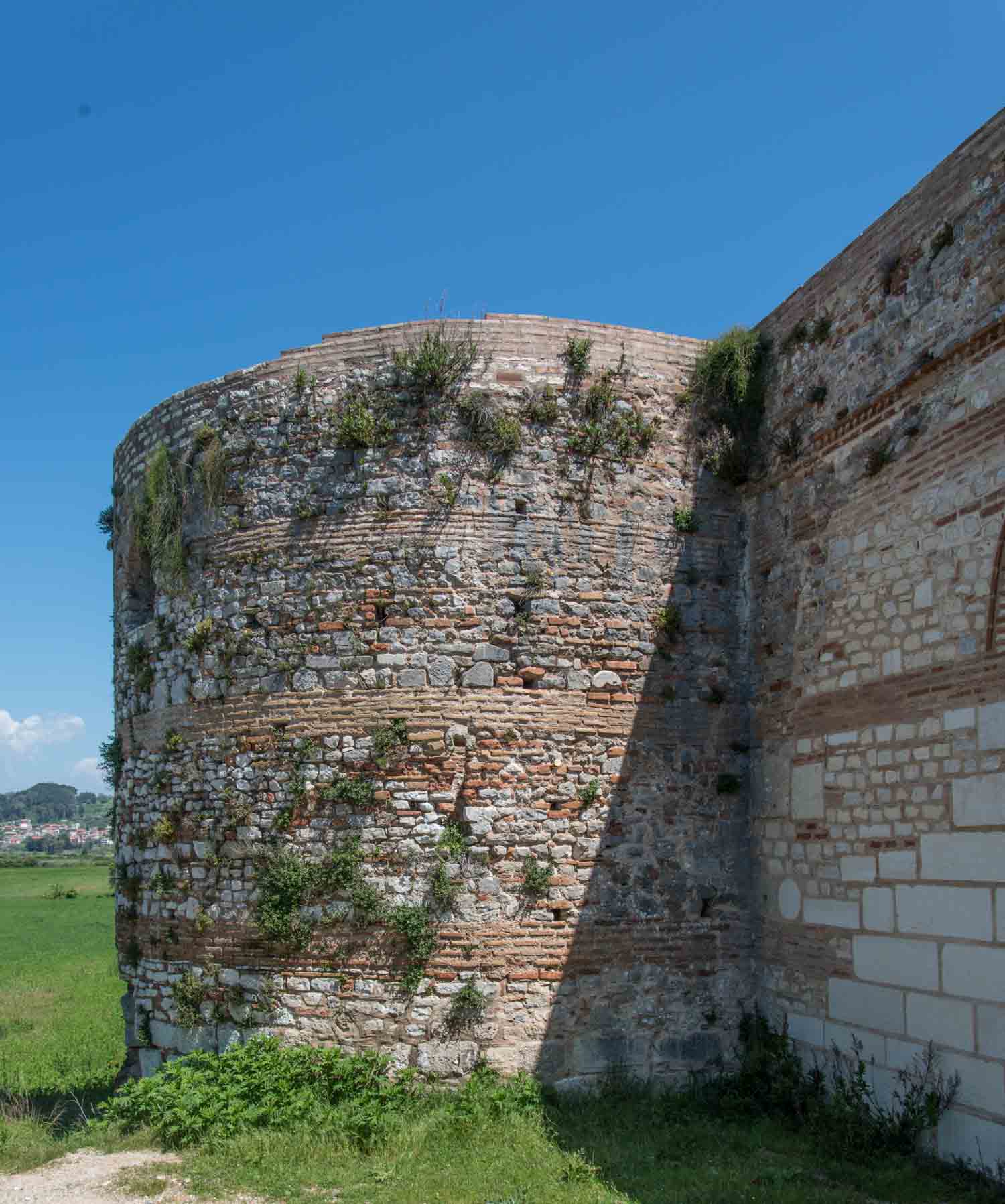
Nicopolis struggled on as the capital of a wider Roman region and then later as one of the early Christian cities in Byzantium until about the 8thCentury AD when it was supplanted by nearby Preveza.
There are still huge sections of the original walls standing and various other structures, including a fairly complete Odeum, which I have learnt today was the name given to arenas where Romans listened to music and theatre. Unfortunately the Odeum is closed to the public and although someone had knocked a hole in the fence I decided not to make matters worse by climbing through. It’s amazing to stumble across such an enormous and well preserved ancient site simply by accident. In any other country this would be UNESCO listed and a major tourist destination. Greece has a surfeit of riches.
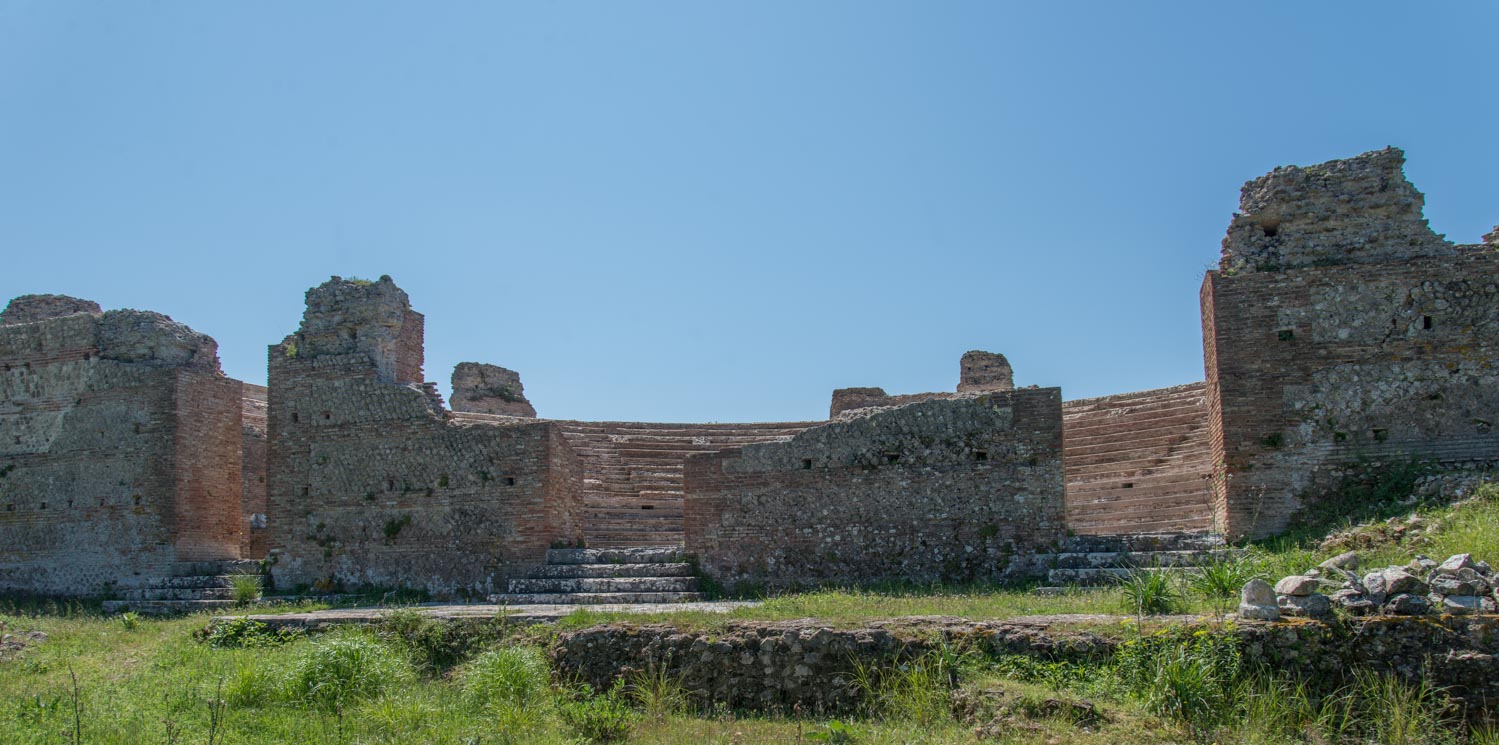
We continued on our way and stopped for lunch at a lovely spot next to the Lefkada canal and an adjacent castle. It was then on to the island itself. The Rough Guide said that the west coast was the most beautiful and we quickly saw why. It is extremely mountainous with hillsides of cypresses and various flowering shrubs spilling down vertiginous hillsides to the turquoise waters way below.
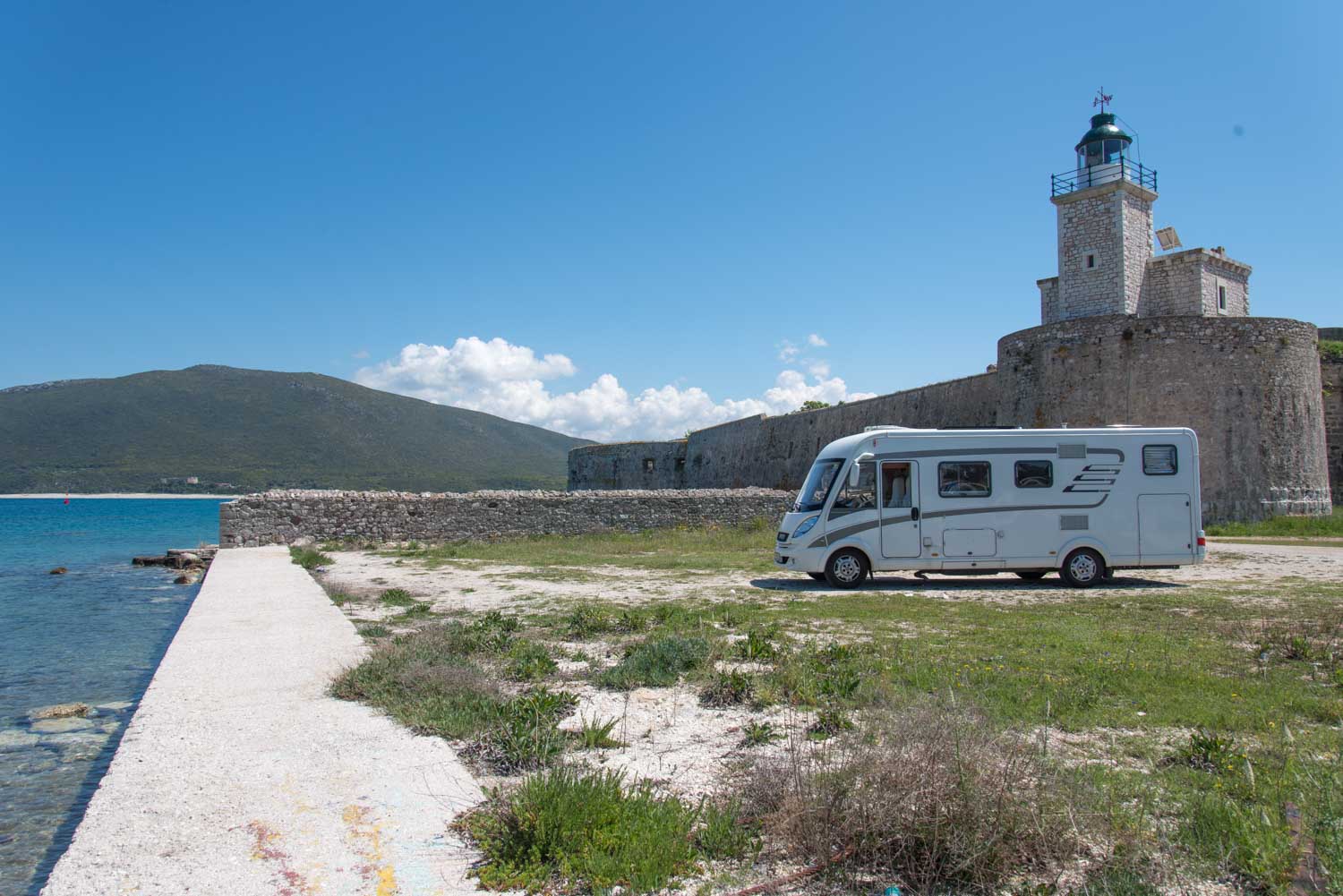
Driving, to say the least, was challenging. Some of the village main streets were barely wide enough for Basil and we were constantly climbing and descending on tortuous, sometimes single track, roads.
We finally spiralled down the most difficult section of all to the stunning Porto Katsiki beach (38.602929, 20.549236 – Free wild camping out of season €10 the rest of the year). I know I overuse the word turquoise in this blog to describe the colour of the sea, but there is no other word to depict the sea at one of the most stunning natural locations we have ever seen. In the summer it is clearly pretty crowded, there being large car parks and currently closed snack bars. But today there were just a handful of people and three motorhomes, including us, staying the night.
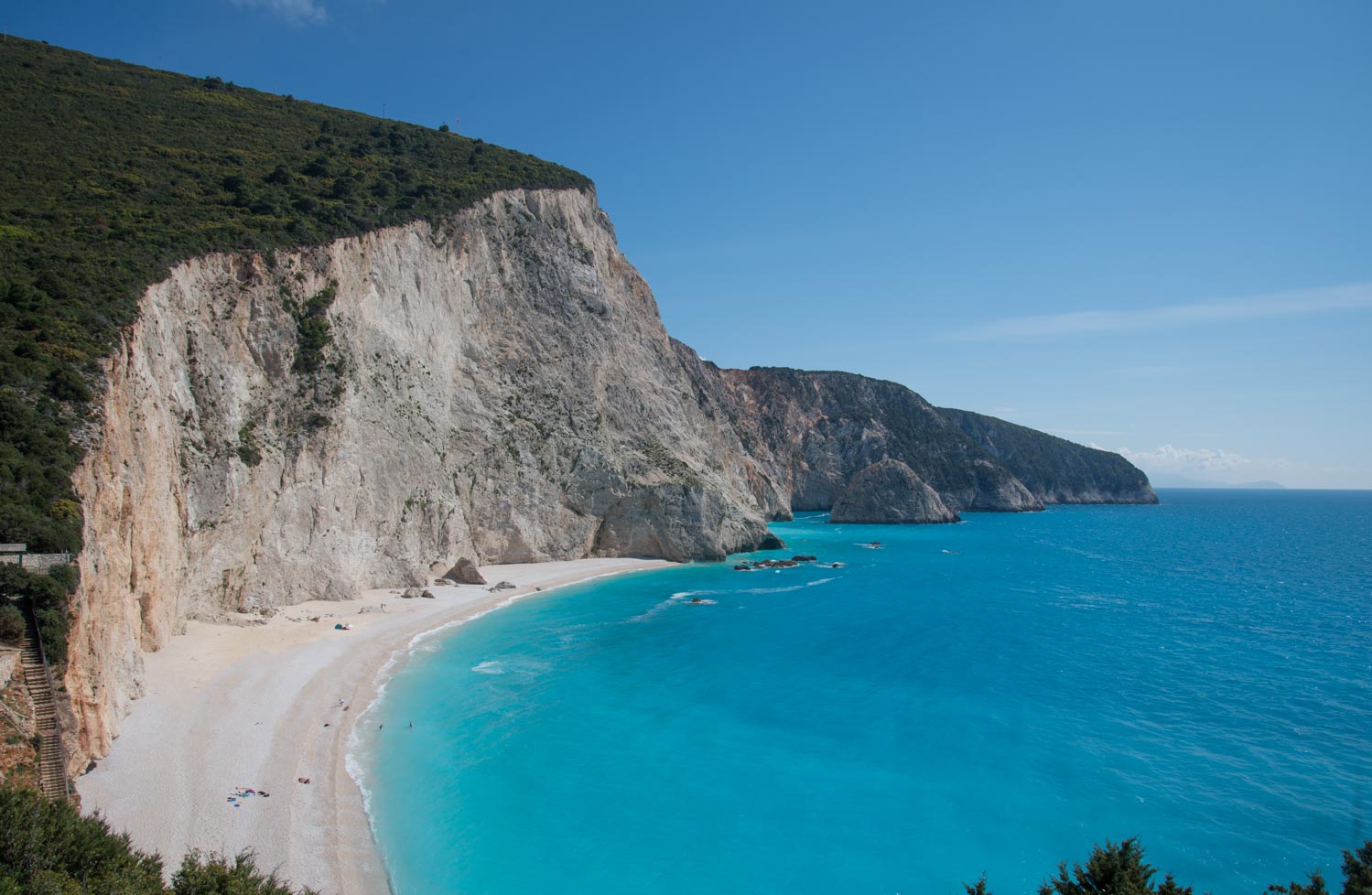
The beach looks nicer than it actually is, because it is primarily made up of small, smooth, white pebbles, which makes walking difficult. Melek found making progress problematic with his little feet, so he stayed with me while Sarah and Mabel explored a bit further.
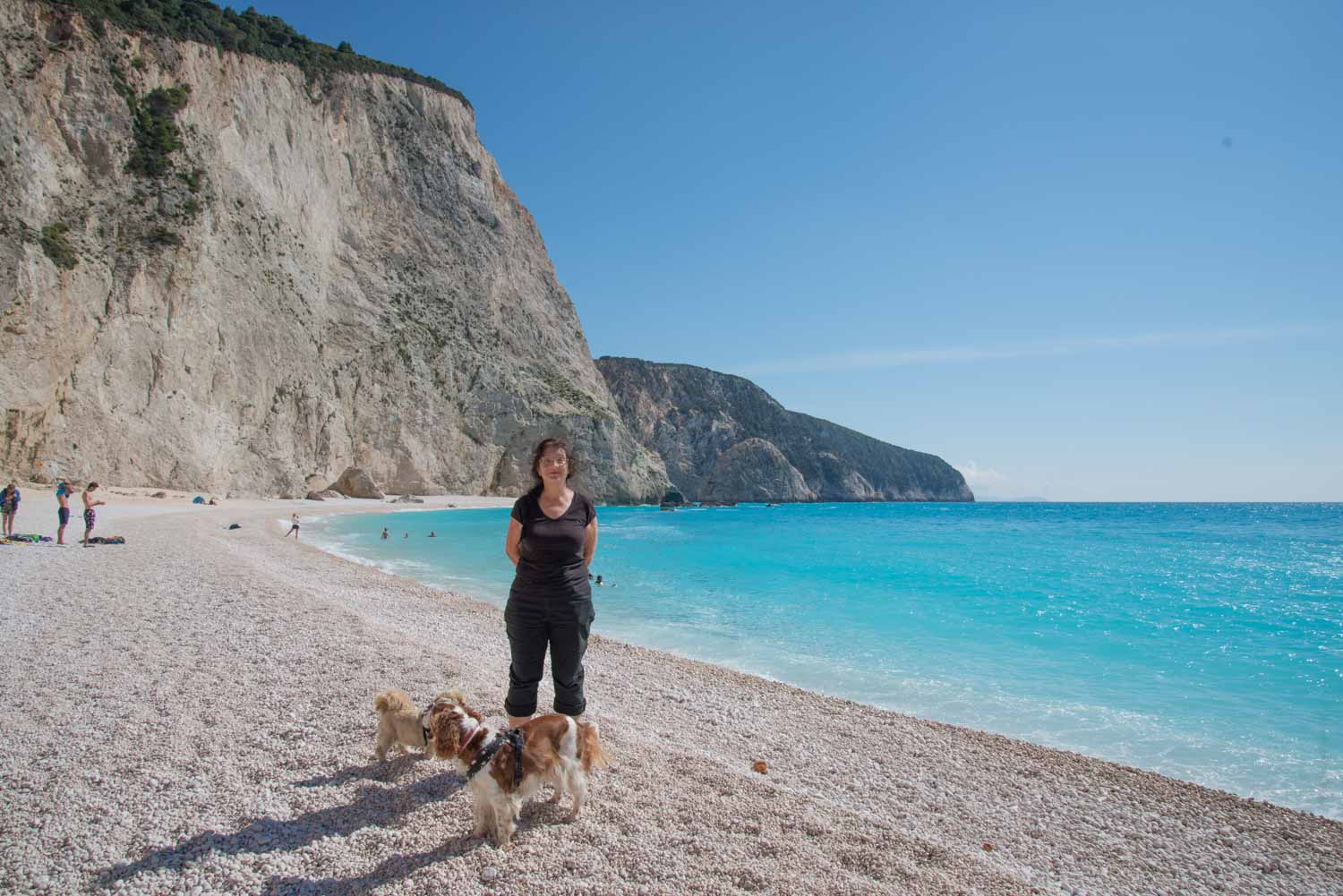
There is a small rock promontory to one side of the bay which is cut off from the main area by a collapsed pathway. That has not stopped some testosterone fuelled young men risking life and limb to clamber across and jump 20 or 30 feet from the promontory into the water. Why can’t they just lie on the beach and read a nice biography of Oliver Cromwell or similar. Youngsters hey – there’s no understanding them!
We are now going to have dinner with perhaps the best view we have ever had from the motorhome and with the sound of waves crashing on the beach below us.
